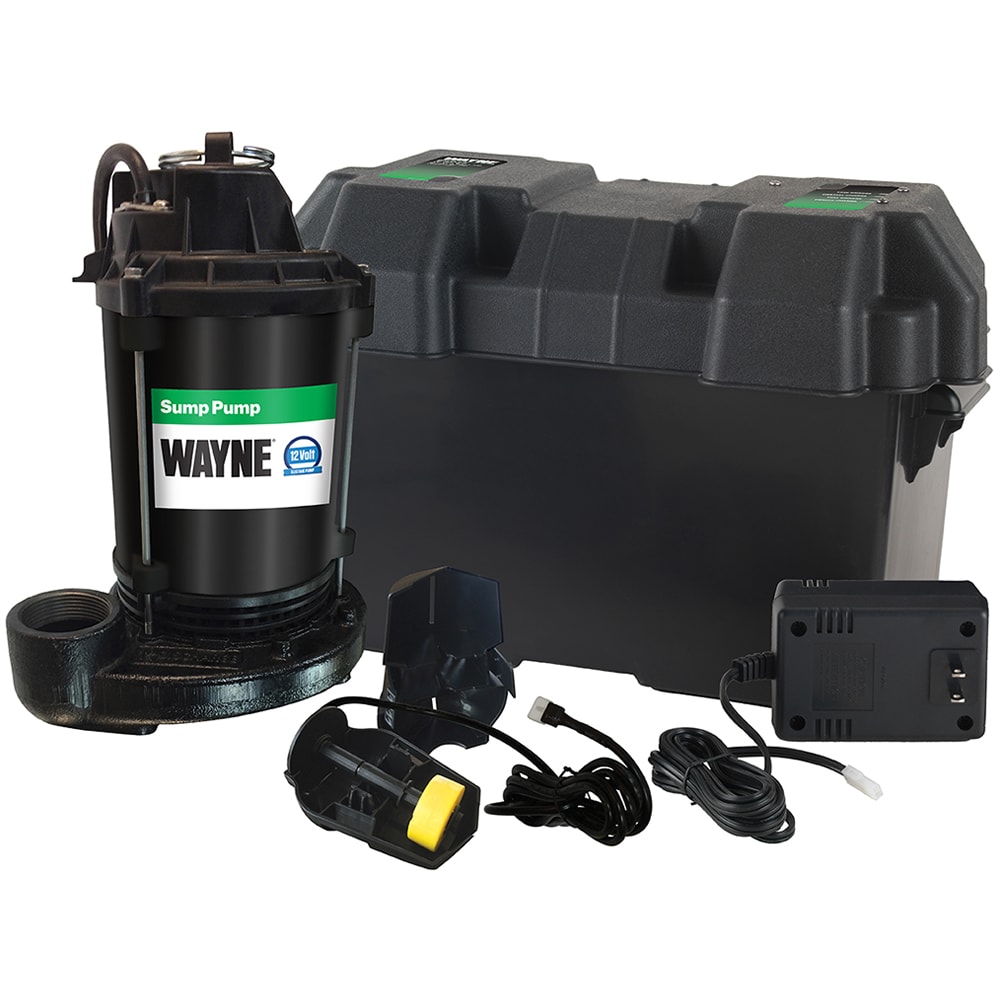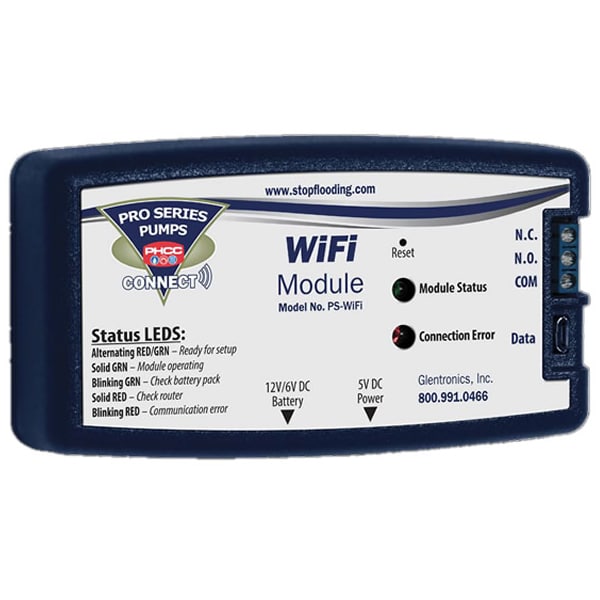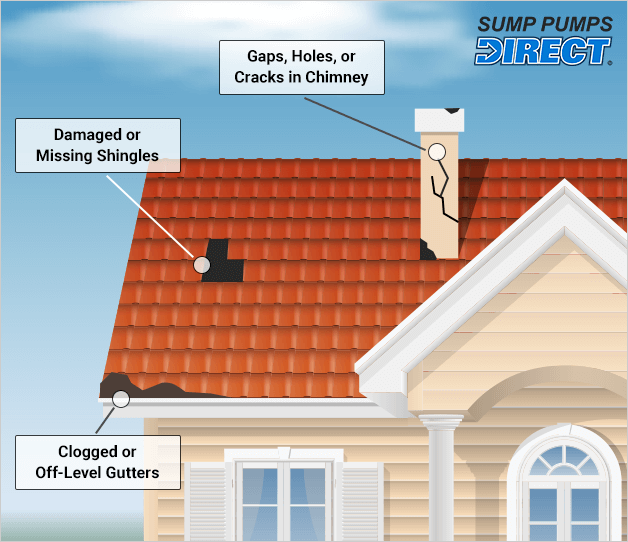
4 Steps for Basement Flood Protection
The last thing you need is a tidal pool of sewage infiltrating your basement.
You've already spent thousands of dollars and countless hours converting your concrete dungeon into a comfortable living space.
Even still, your finished basement really isn't finished without a full-fledged flood emergency plan
in place. You need layers of protection to keep your comfortable space safe.
1. Have Emergency Backup Power Ready
Your sump pump is the most important appliance in your basement. Without it, a
flash flood or heavy seasonal thawing can easily transform new carpeting into a massive, moldy sponge and ruin everything touching the floor.
Without having backup power available for your sump pump, a simple 30-minute thunderstorm can quickly destroy all your hard work in minutes.
Types of Backup Power for Sump Pumps:
 Battery backup sump pumps automatically keep your sump pump running for a few hours during a power outage by using a backup battery. Plus, they include a backup sump pump in case your original one malfunctions or fails.
Battery backup sump pumps automatically keep your sump pump running for a few hours during a power outage by using a backup battery. Plus, they include a backup sump pump in case your original one malfunctions or fails.
Read More:
How to Pick the Perfect Backup Sump Pump Portable generators can power your sump pump (among other appliances) for days as long as you've got gasoline ready to use. In addition, a 5,000 to 7,000-watt generator can keep your refrigerator, furnace, and other critical appliances running.
Portable generators can power your sump pump (among other appliances) for days as long as you've got gasoline ready to use. In addition, a 5,000 to 7,000-watt generator can keep your refrigerator, furnace, and other critical appliances running.
Read More:
How to Pick the Perfect Portable Generator Standby generators give you the best of both worlds - automatic AND long-term protection. Yes, they cost more. But, they also automatically power the majority of your house as soon as you lose power, not just one appliance.
Standby generators give you the best of both worlds - automatic AND long-term protection. Yes, they cost more. But, they also automatically power the majority of your house as soon as you lose power, not just one appliance.
Read More:
How to Pick the Perfect Standby Generator
2. Get a Sump Pump Warning System
 Even with emergency power running, sump pump alarm systems alert you of issues before you're forced to clean up the mess.
Even with emergency power running, sump pump alarm systems alert you of issues before you're forced to clean up the mess.
Sump Pumps Direct carries a complete line of sump pump alarm systems, ranging from simple beeping alarms to sophisticated smart systems that automatically text or email you if an issue is detected.
3. Get Flood Insurance
Why get
flood insurance? Simple. The majority of people who purchase flood insurance or take other precautions do so only after they've experienced basement flooding. It's a costly mistake that we hope you don't also make.
We've heard plenty of horror stories, including the insurance disasters following the destruction of Hurricane Irene and Hurricane Dorian. Homeowner's insurance will protect you from wind damage, but often not flood damage. You'll need a separate flood insurance policy to be sure your basement is protected.
4. Learn How to Waterproof Your Basement
 Usually, the only homeowners that have intentionally taken steps to waterproof their basement are the ones who have done a total remodel or have had basement seepage issues in the past.
Usually, the only homeowners that have intentionally taken steps to waterproof their basement are the ones who have done a total remodel or have had basement seepage issues in the past.
Learning how to waterproof your basement
will give you the best chance of keeping water out of your home regardless of whether the power goes out or if you own one of the best backup sump pumps on the market.
Often times, the sources of basement leaking aren't even issues occurring in the basement. Instead, compromised gutters, cracks in the chimney, or even a loose shingle can allow water to penetrate even the smallest gap and trickle into your basement. During a storm, little leaks add up.


